- Home
- K. R. Alexander
Quake
Quake Read online
Quake
Love Versus World
Book One
K.R. Alexander
Copyright © 2020 by K.R. Alexander.
All rights reserved.
Newsletter for latest releases and exclusive content:
kralexander.com
Titles by the same author available on Amazon.
Chapter 1
Scrolling on my phone, I paused after many minutes, eyes widening. With a grin, I rushed to tap the icon to share. Thirty seconds for a reply: row of laughing emojis from Jamie.
I propped an ankle on my raised knee, sprawled on my back, hair mashed around my ears against the comforter, and kept scrolling down the feed. If I could only find a monkey…
My favorite thing about my little brother is his ability to laugh at everything. Jamie might just about wet himself at a funny monkey video—like snatching a tourist’s hat off her head. He has what Mom always referred to as a “bit of” a learning disability. He lives at home with her, working at a hardware store outside of Nashville. That’s the only problem with Jamie, really, along with Mom and big sister Kimberly: all in Nashville. It hadn’t seemed so far away before the lockdown, before buses stopped running and planes stopped flying. It had seemed far but not the end of the world. Now, here we were.
I blew out a breath and flopped over onto my stomach, closing Facebook in favor of searching GIPHY.
Screen change below my fingers: incoming call. I didn’t care if it was Mom or telemarketers or Satan. “Hello!”
“Hey, Brook?”
“Oh, hey, Vi. What’s up?”
“You okay?”
“Me?” I laughed. “That’s why you called?”
“No, I mean, you sound a little … wound up? Manic? I don’t know?”
“Do I?” I rolled to my side to look out the window at new brightness of spring leaves across the street.
“What are you doing?” Vi asked.
“Seeking monkey videos.”
“Uh… Well, I’d say you need to get out more, but—”
“But I’d be arrested?”
“Unlikely, Brook.” I could hear Vi roll her eyes. “It’s just a fine.”
“What about Philadelphia?”
“Special case. They’re not arresting people for quick, legit outings. Everyone would flip out.”
“People are flipping out already, Vi.”
“Oh, that’s what I called about. Did you hear? School closures bumped to another month.”
“What else is new? Same for last month.”
“We’re getting wanderers around here. Sure, public places stay closed, but people wouldn’t stay home in the first place and now they’re hitting the walls. Are you seeing anyone out?”
I sat up on the bed so I could look down to 11th Avenue. “No … all good here. I haven’t stepped outside in a week. And that was just for Trader Joe’s. Not that there’s much to get.”
“At least toilet paper is back.” Vi snickered.
“Totally not funny.” I set the phone down and crossed my arms on the ledge, nose on glass. Cleaning it later would give me something to do. My studio apartment hadn’t been this clean since I’d moved in. Bargaining power when I wouldn’t be able to pay my rent next month? Clean the building? And what if I still wasn’t working by summer?
One week at a time. That’s what they keep telling us. Stay home, count your blessings. So many people are much worse off. Split from families, trapped in the wrong country, ran out of savings, looking after children or grandparents, hungry, homeless, or—and this number had just passed a million—dead. Lots and lots of people were dead. My problems, in my clean studio on 11th and Denny, overlooking Cal Anderson Park in shut-down Seattle, healthy and with plenty of canned goods and rice, were incredibly small. In Mom’s parlance, my cup was overflowing and I was drinking from the saucer.
I knew that. Vi knew it. Her isolation was with her boyfriend in the International District. She had family scattered across three countries, mostly Thailand, two grandparents and an uncle dead. She’d told me how lucky she was.
All of us lucky, just holding on, waiting with our breaths held, like the rest of the world.
I took a silent sip from my invisible saucer.
Below, 11th Avenue was lined with not only bright green trees, delighting in spring, but endless cars parked bumper to bumper. Exact same color pattern, same Toyota, VW, and Lexus staring back at me for two months. Not even a dog strolled past on the sidewalk. Out the open window were no sounds of traffic, voices, or Seattle rain. Only a bird sang in leaves, another answered, and urban streets fell silent once more.
They said stay in, save us and others, be healthy. What about mental health?
I sighed. “How about you and Conner? You okay? Wish I’d been marooned with Jackson.”
“Testing the relationship, I’ll tell you that. Might consider yourself lucky to be alone, Brook. Anyway, you never even hooked up with Jackson.”
“No, I just… I don’t know… I wish you were here, or Kimberly, or Brian, anyone.”
“Brian was a germaphobe in the first place. Doubt he’s wanting to hang out.”
“I haven’t seen him in two months. Hope he’s okay.” Brian was one of my neighbors downstairs in this old brick building. We used to hang out, sort of cruising together, pretending we weren’t. He has as much trouble meeting guys as I do, even in Capitol Hill. Brian’s trouble is social anxiety—meeting anyone. My trouble is meeting the right someone. Or someones.
“He’s fine,” Vi said. “Enjoy what you’ve got, Brook. Just think—”
“That is the most annoying thing to be told.”
“You know what I mean.” Then she laughed. “Guess you wouldn’t mind being trapped with a few dudes, hmm?”
“Crossed my mind… Not that anything of the sort ever started. Just got carried away keeping up with the Joneses.”
“What ever happened to them?” Referring to my former neighbors.
“Moved last fall.”
I’d at first thought they were a couple and a roommate, only gradually sorting them out after spying on the threesome, two women and a man, in the corridors and around the building. I found the idea of polyamorous relationships intoxicating and had started reading books like Taormino’s Opening Up, joined a Facebook group, wanted to go to a meetup but chickened out, and so on. Admittedly, I wasn’t into women, which narrowed the pool, but I’d been charmed by my neighbors and had now been toying with the idea for a year. The question in my case turned out not to be, “Could it hurt to try?” But instead, “Can I try?”
Even before the virus and recession, lockdown and a million dead, the answer had been a big, fat, NO. The only possible guy I’d met in person from my online networking was Jackson. One coffee meetup, equally curious about plural relationships, few years older than me—which I like in a guy for maturity level—gorgeous, and totally not my type. He was such a jock, snowboarder talking about how he’d teach me and we could go out that winter—after I’d expressed zero interest in snowboarding. Plus a general hyper thing that might have been first-date nerves or only how he was.
I’m pretty down to earth, go with the flow. It rains, I pull up my hood. No bus, I walk. Friends like Vi call me when they need grounding, not the other way around—hence her wondering when I sounded wound up. So I could see, from Jackson’s topic-jumps and eagerness to toss me into an activity that I’d never asked for, that his pretty face combined with involvement in poly networking wasn’t enough to constitute a match made in plural heaven.
Would I have met again? Totally. I wasn’t that practical: twenty-three, Seattle University student, part-time barista, and disappointed in my own social scene even before I’d been put in this really big timeout. I’d at least let the guy take me to
dinner. Only that had been around the holidays, after so much travel, when people started dying. Next thing we knew, social media feeds and texting were all anyone was seeing of each other. By February, everything was closed. Now it was April, sunny, the parks green, the sidewalks silent, Seattle asleep.
Jackson, who also lived in Capitol Hill, had asked, but life was a raincheck. With nothing to do but school work and attend remote classes, I read Kindle books, cleaned the studio out of sheer boredom, streamed foreign films with subtitles to make me focus, got creative with rice and beans, and still spent hours daily texting friends and family—and looking for monkey GIFs.
Paying with a currency of loneliness for our good health, everyone had started calling more. Lots of, “How’s it going?” And, “Just wanted to check in.”
Staying safe, keeping other people safe, drinking from my saucer: that was what mattered. We would get through this. There were still deliveries, necessary businesses open with limited hours for essentials, hospitals and care homes of all sorts overrun, hundreds of thousands of people confined to quarantine facilities in every state, more deaths each day. But also more people recovering each day, and fewer getting sick.
“Well … I just wanted to tell you about the schools,” Vi said. “I guess we knew nothing would be open before June at this point.”
“Or before Christmas.”
“Hey, we’re saving lives. We’re doing the right thing. I’m impressed with how people stick with it and look after each other, you know? It could be so much worse by now.”
Usually my line. I guess my manic tone had slid to the other extreme.
“Yeah, I know. Thanks for calling, Vi. Say hi to—do you feel that?”
“There’s a truck going past in the street or—”
“Wait, I feel it. It’s an earthquake! Get under something!” I grabbed the phone, diving below the kitchen table as the floor pitched below me.
“Conner!” Thump.
Crash of framed photos rattling off my dresser to the floor.
Just an earthquake; Seattle gets earthquakes. It’s only glass. It’ll be over in five seconds.
It wasn’t over in five seconds. It wasn’t over in five minutes. It grew and grew until the sound of broken glass turned into the sound of a city ripped apart with my own screaming, falling, sliding across the floor and impossibly down. And still the world shook.
Chapter 2
Ache in my chest, couldn’t stop coughing. This was it. I was sick. Virus.
No, I wasn’t … the earthquake? Oh, my God, what was happening?
I tried to reach out, blink, but “find your feet” took on a whole new meaning as I was so unsure about them. A joke swirled in my head for Jamie. Something about whistling for your own feet like a dog. His unaffected laugh filled my head. Where was Jamie? Was he hurt? Of course not. He was in Tennessee. Where was I?
“Mom?” No … she was also many states away. The effort to speak set off coughing so violent that I could think of nothing but that and pain for a minute. The sort of cough that grabs you when dust gets in your throat. Only imagine your face into a tub full of dust. No matter how much I coughed it got worse, more dust filling eyes and nose, coating my tongue.
I lashed out, scrambled onto hands and knees, startled to realize I could move at all, I’d felt so pinned down. Everything hurt. Where? My studio, right? I’d been knocked out in the quake when everything crashed…
All that noise still thundering through my ears was fading, ringing and booming replaced by sounds of voices. Someone screamed in pain. Someone else called for … Eddie? Betty?
There’d been a catastrophe; everyone would be yelling, hurting, emergency sirens wailing. This darkness was the dust, apartment building turned to powder like cornmeal. I was breathing glass, wood, concrete, brick, which explained this pain in my chest and eyes.
I was alive, awake and coughing, sure I could help. Some people wouldn’t be so lucky.
Struggling to see through the cloud, I found traces of my apartment. There was the bed, on its side on a section of the wall, lying at a crazy angle, just like this floor that sloped downward. So the three-story building had folded up like an accordion? Was I lying on crushed neighbors?
“Brian?”
Those weren’t sirens. Car alarms were beep-beeping, blare of horns, all down the block.
I scrambled up, ready to find people, escape dust and breathe. Whack—head into the underside of my kitchen table. I looked up. All this time I’d held onto one leg of the table and my phone. One saving my life, one connecting it.
I struggled away, clinging to the phone, thinking to call 911, as if they wouldn’t know, then thinking of Mom. She always knew what to do. But I couldn’t talk. Nor, as it turned out, could I walk away from this mess, standing at the heart of a heap of rubble. Who’d built this place anyway? Sure, it was old, but everyone knew Seattle was on a fault line.
It took me ten choking, painful minutes to move what must have been roughly across one room—only to second-guess myself. I could see nothing but the dust, gradually growing lighter as it started to drift and sunlight fought through, plus the brick rubble below my socks.
Later, I remembered being more scared than I really was. In the first moment there was so much shock and confusion, waiting for senses, everything denial, so I was pretty calm at first. I wasn’t brave. I was just … lost. Thinking of friends and family and dust and car alarms. I might have spent an hour trying to clamber over rubble for the far block if I hadn’t heard shouting and turned left to find my middle-aged upstairs neighbor, Sophia, calling me.
“This way! The park is this way!”
“How do you know?” I coughed, turning around.
“Boo went this way. He’s been hiding under the bed all day.”
A social butterfly, I’d never heard of that cat hiding under any bed.
I struggled across part of the roof to find Sophia at the bottom of shingles, hand out to me. I’d never felt so relieved to touch another human being as I did catching Sophia’s hand. Tears spilled down my cheeks as I gasped, “Thank you,” and it was just as well because it helped to clear my eyes. The two of us held each other up, slowly making our way out.
Soon, we were guided by voices. Boo had been right—two for two. We were coming to 11th Avenue, across from which Cal Anderson Park would provide some measure of cool grass and escape from debris until first responders could get here. There was a reflecting pool in the park, toward the middle. I didn’t care if it was green, I was sticking my face in there.
“You can’t cross!” Those voices weren’t yelling to show us the way to the park.
Sophia stopped, trying to wipe her eyes on the inside of her sleeve.
“Brian?” I called, coughed. “Is that you?”
“Brook? Turn left—your left. We’re trying to find a way over. Don’t keep walking into cars.”
I couldn’t figure this out, now as deaf with car alarms as the earthquake echoes and grit in my ears. I was still thinking how Brian must have run into the park at the first rattle, wished I’d been there, but maybe a deadly thing to have done, when Sophia pulled me left.
We tripped through bricks, over walls, grabbing at cars, feet hurting, until voices told us to get across here, and the dust had cleared just enough that I could see 11th, now a trench where the pavement had split, the gap so wide and deep, parked cars had toppled into the ravine.
I gasped, which set me choking again.
It seemed an age of shouts and car alarms before we got across, along with others, with a cluster of people already at the park helping us over mounds of rubble that had crossed the street.
Everyone was coughing, calling out, asking if we’d seen someone else, trying to make phone calls without a signal. Many were bleeding or suffering from broken bones, nowhere to go but the glass- and debris-littered grass. It seemed like dozens of people were calling for water, one of them me, still fixed on getting to that pond.
“Where are
the cops? Anyone?” I gasped to Brian through coughing as we staggered toward the more clear center of the park.
“We’re not going to be getting help anytime soon,” Brian panted.
“Are more roads split?”
“Seattle is split, Brook.”
“It’ll be all right,” I managed, but fear was coming then. Fear that grabs hold and won’t let go, saying, No, it won’t. No, you’re not. No, you can’t.
Fear turned to panic when we heard others across the park, through all those thousands of car alarms, screaming that Seattle was gone.
Chapter 3
Noise of hundreds of people panicking, unable to breathe, chased me through the park as I struggled blind to find my way toward the reflecting pool. Phones weren’t working, no signal going through with the system overloaded, while power was gone so at least toppled lines were no danger. I never did find the pond, which would have been awash with debris and bird droppings anyway. It was my knight with shining water bottle who saved me.
Brian was trying to help people away from rubble on the east side of the park by our building. Sophia joined a frantic mother in a search for a little boy. Other than bruises and small glass cuts, I was pretty sure I wasn’t hurt. If I could just see, and breathe, I would help.
I struck out across the grass in a billowing dust cloud, almost knocked down by a Siberian husky streaking away in terror. Dogs and cats were on their own, clawing from destroyed homes and either cowering, hurt, or running with nowhere to go. I didn’t think about it then, only later remembered the husky, and that every animal had been going in the same direction: east as fast as they could move.
At the time, it made me think of aftershocks, feeling like I should warn someone. Who? To do what? Limbs tingling, coughing, I tried my phone again, eyes streaming, calling my mom—still wouldn’t work.
“Brook?” A neighbor?
I waved, trying to indicate I wasn’t one of the injured. “Fine, I’m fine,” I choked.

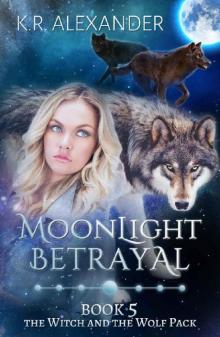 Moonlight Betrayal: A Reverse Harem Shifter Romance (The Witch and the Wolf Pack Book 5)
Moonlight Betrayal: A Reverse Harem Shifter Romance (The Witch and the Wolf Pack Book 5)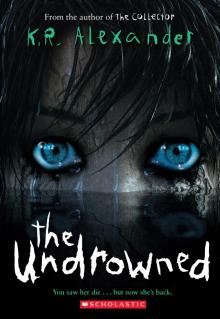 The Undrowned
The Undrowned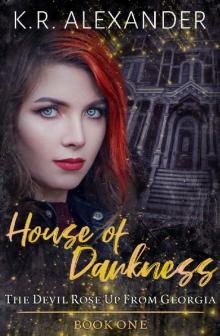 House of Darkness
House of Darkness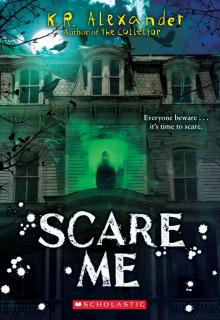 Scare Me
Scare Me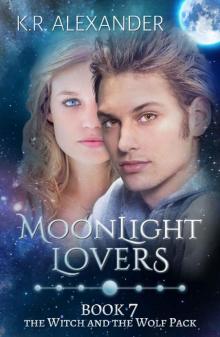 Moonlight Lovers: A Reverse Harem Shifter Romance (The Witch and the Wolf Pack Book 7)
Moonlight Lovers: A Reverse Harem Shifter Romance (The Witch and the Wolf Pack Book 7)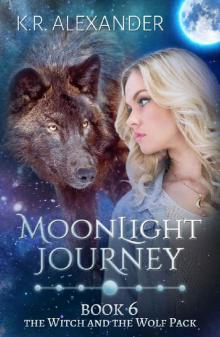 Moonlight Journey: A Reverse Harem Shifter Romance (The Witch and the Wolf Pack Book 6)
Moonlight Journey: A Reverse Harem Shifter Romance (The Witch and the Wolf Pack Book 6) Storm
Storm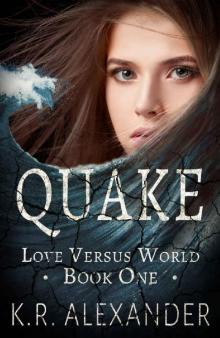 Quake
Quake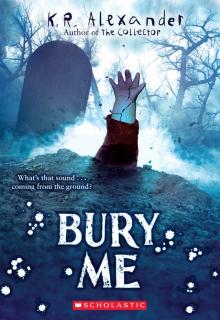 Bury Me
Bury Me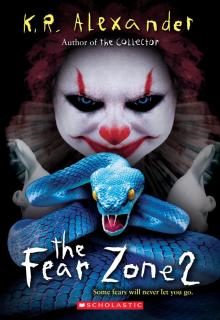 The Fear Zone 2
The Fear Zone 2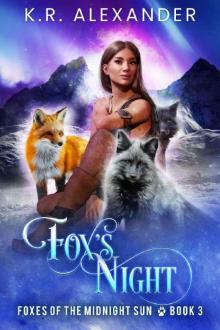 Fox’s Night: A Foxy Reverse Harem Shifter Romance (Foxes of the Midnight Sun Book 3)
Fox’s Night: A Foxy Reverse Harem Shifter Romance (Foxes of the Midnight Sun Book 3)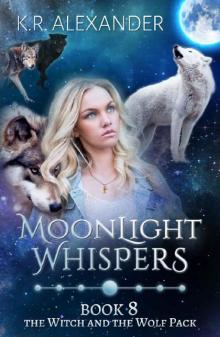 Moonlight Whispers: A Reverse Harem Shifter Romance (The Witch and the Wolf Pack Book 8)
Moonlight Whispers: A Reverse Harem Shifter Romance (The Witch and the Wolf Pack Book 8)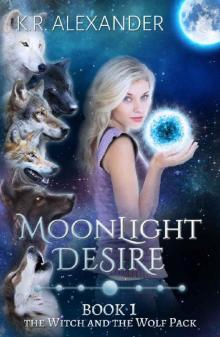 Moonlight Desire: A Reverse Harem Shifter Romance (The Witch and the Wolf Pack Book 1)
Moonlight Desire: A Reverse Harem Shifter Romance (The Witch and the Wolf Pack Book 1)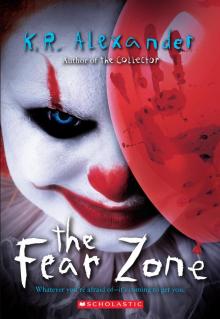 The Fear Zone
The Fear Zone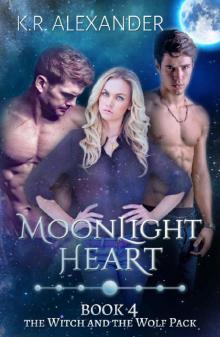 Moonlight Heart: A Reverse Harem Shifter Romance (The Witch and the Wolf Pack Book 4)
Moonlight Heart: A Reverse Harem Shifter Romance (The Witch and the Wolf Pack Book 4)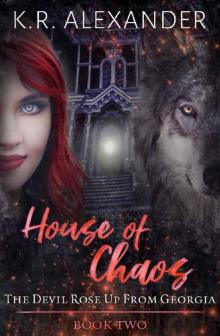 House of Chaos
House of Chaos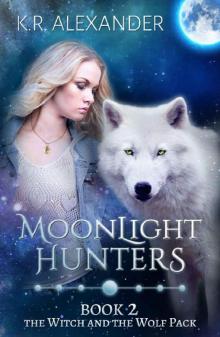 Moonlight Hunters: A Reverse Harem Shifter Romance (The Witch and the Wolf Pack Book 2)
Moonlight Hunters: A Reverse Harem Shifter Romance (The Witch and the Wolf Pack Book 2)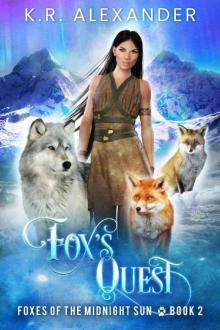 Fox's Quest: A Foxy Reverse Harem Shifter Romance (Foxes of the Midnight Sun Book 2)
Fox's Quest: A Foxy Reverse Harem Shifter Romance (Foxes of the Midnight Sun Book 2)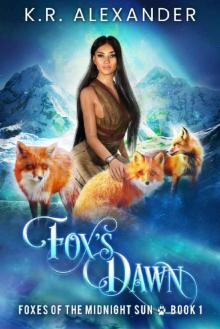 Fox’s Dawn: A Foxy Reverse Harem Shifter Romance (Foxes of the Midnight Sun Book 1)
Fox’s Dawn: A Foxy Reverse Harem Shifter Romance (Foxes of the Midnight Sun Book 1)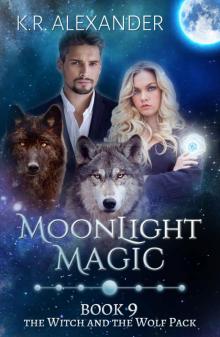 Moonlight Magic: A Reverse Harem Shifter Romance (The Witch and the Wolf Pack Book 9)
Moonlight Magic: A Reverse Harem Shifter Romance (The Witch and the Wolf Pack Book 9)